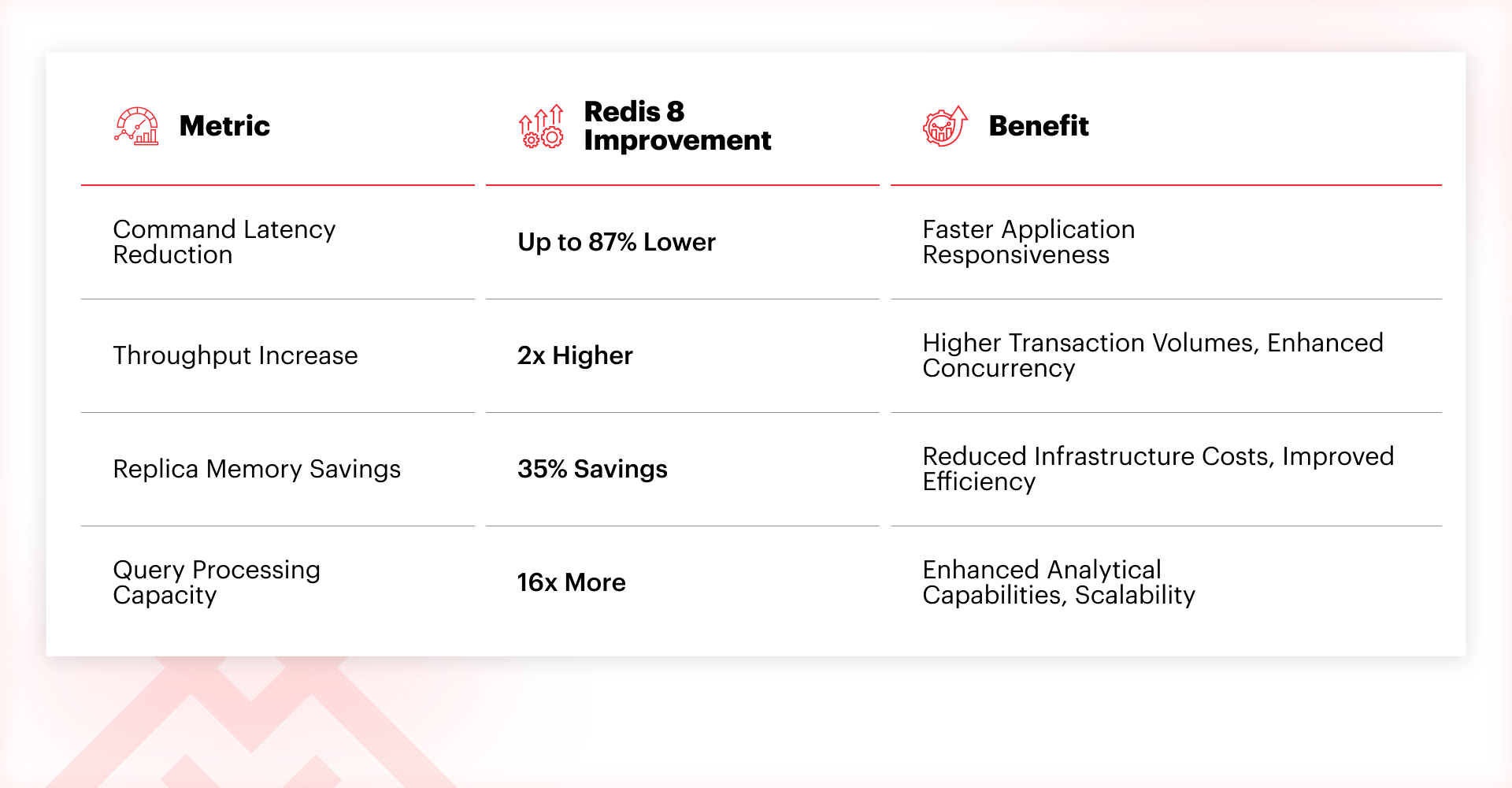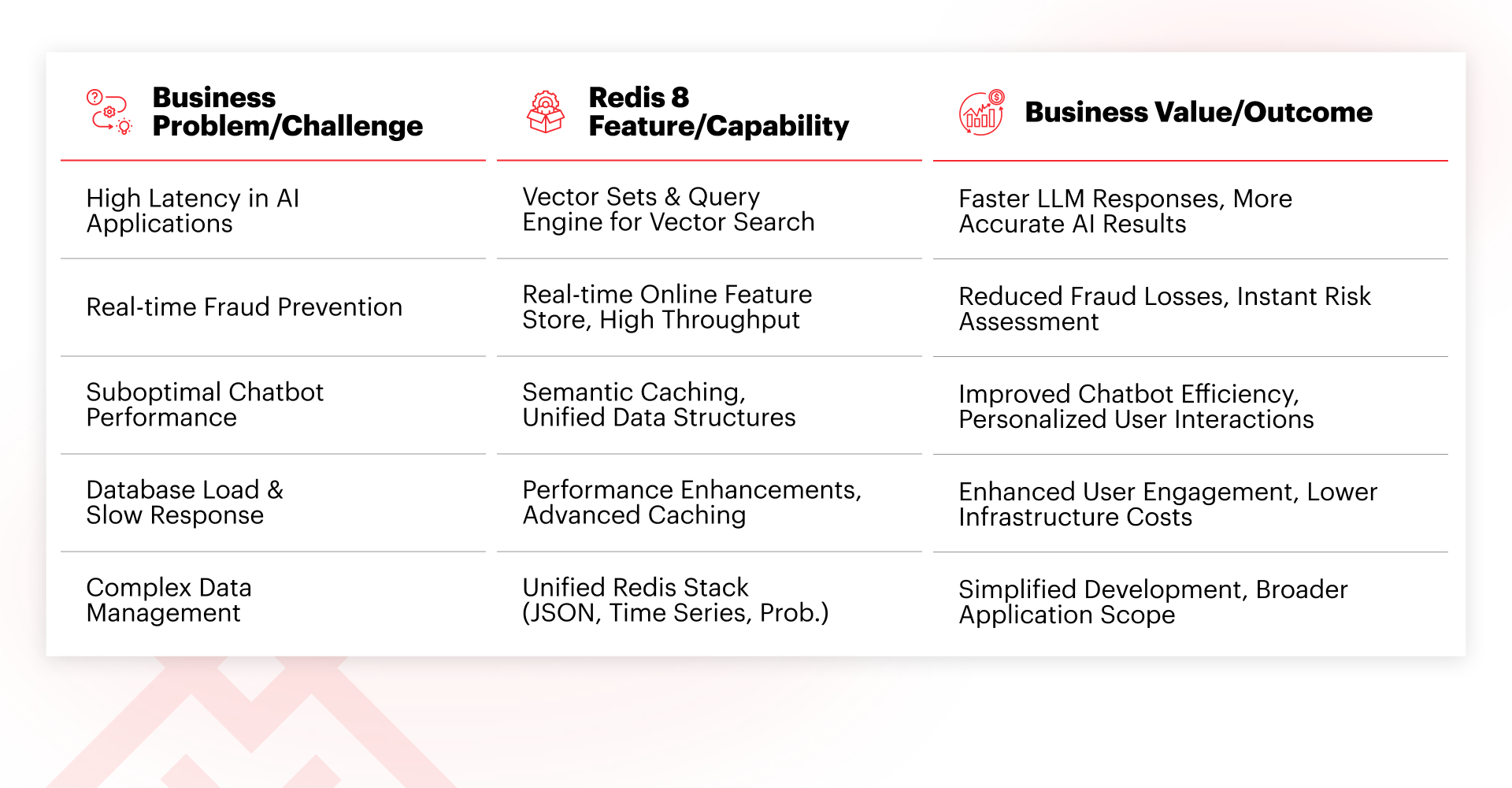

Redis 8: The Future of High-Performance Data – Coming to Windows with Memurai in Q3 2025
Technical articles and news about Memurai.
Redis 8 is officially here, a big step forward for in-memory data technology. It’s packed with new data structures, a unified Redis Stack, and performance boosts, all built to handle today's demanding data needs. Here at Memurai, our engineering team is already hard at work integrating Redis 8's powerful new features into Memurai, with a release for Windows users planned for Q3 2025.
What’s New in Redis 8 🚀
Unified Redis Stack & New Data Structures
Redis 8 enhances the developer experience by including powerful modules that are now enabled by default. These include:
- JSON and Time Series support directly within Redis.
- Probabilistic data structures including Bloom filters, Count-Min Sketch, Top-K, and t-digest.
- Native vector sets for similarity search—a major advancement for AI and semantic search applications.
- Redis Query Engine integration for advanced filtering and aggregation.
By bundling these modules as defaults, Redis 8 delivers a more unified and streamlined setup without compromising its modular architecture.
(Source: Redis 8 GA Blog)
Performance Enhancements
Redis 8 delivers significant performance improvements, including:
- I/O threading for increased throughput on multi-core systems.
- Enhanced memory defragmentation and module defragmentation APIs.
- Improved replication and more efficient AOF-based recovery.
- Over 30 internal optimizations that reduce latency and resource overhead.
(Source: What’s New in Redis 8.0).
Redis 8 offers clear and substantial performance gains, whether you're running a single node or a clustered deployment.

Developer-Centric Features
Redis 8 introduces several new commands and improvements:
- New hash commands: HGETDEL, HGETEX, and HSETEX.
- Cluster compatibility metrics like cluster_incompatible_ops to ease migration.
- Expanded Modules API for memory management and defragmentation.
- Enhanced INFO command with threading stats and key expiration insights.
Licensing Updates
Redis 8 adopts a tri-license model: Redis Source Available License (RSAL), Server Side Public License (SSPL), and AGPLv3. This approach ensures source code transparency while maintaining commercial flexibility. (Source: Redis 8 GA Blog)
Enhancing Core Application Performance and Scalability
Redis's foundational strengths in caching, session management, and real-time data access are greatly enhanced by the improvements in Redis 8.
- Caching: Primarily used to cache frequently requested data, such as user session information, Redis significantly reduces the load on backend databases and accelerates response times. Redis 8's improved hash commands, now with expiration features, make caching strategies even more efficient, giving you finer control over when cached data expires and is removed.
- Session Management: Storing session data, including authentication tokens, user profiles, and recent actions, in Redis ensures instant access. Built-in Time-to-Live (TTL) features securely manage session expiration without additional overhead.
- Scalability and High Availability: Redis 8 continues to offer excellent scalability options, supporting clustering for data distribution across multiple nodes. This improves system capacity, availability, and redundancy. With its distributed architecture, data is automatically sharded across multiple nodes. This not only boosts performance but also enhances system resilience by eliminating single points of failure.
The following table summarizes how Redis 8's capabilities address key challenges for IT decision-makers:

Memurai + Redis 8: Bringing Innovation to Windows
As the official Redis partner for Windows, Memurai delivers the only native, enterprise-grade Redis experience for Windows—without relying on Docker, WSL, or virtual machines. Our technical team is currently working to port Redis 8 features into Memurai in phases. Initial efforts are focused on integrating RediSearch and RedisJSON, based on direct customer demand. The vector sets feature—now part of the main Redis repository—is also included in our Redis 8 porting roadmap. Other modules are planned to follow later this year.
This phased approach ensures Windows developers can soon benefit from the most in-demand Redis 8 capabilities.
